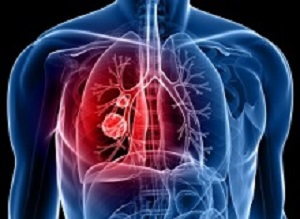More than half of lung cancer patients in some parts of the UK are only diagnosed when they visit A&E, often because their GPs have missed signs of the disease, often despite repeated visits.
The Guardian reports that this is according to a study by the UK Lung Cancer Coalition, that found as many as 56% of people in some parts of England who get lung cancer are only diagnosed when they visit A&E. They are five times more likely to die within a year than those whose condition has been identified either by their GP or through the National Health Service (NHS) cancer screening programme.
“People diagnosed in A&E are dying as a result of delays in identifying their illness. Late diagnosis makes lung cancer harder to treat and is a major reason why we have such poor survival in the UK,” said Professor Mick Peake, chair of the coalition’s clinical advisory group. It is “a travesty” that admission to hospital as a medical emergency is the single commonest way the disease is diagnosed, added Peake, who is also the clinical director of the Centre for Cancer Outcomes at University College Hospital London.
The report says patients’ reluctance to have symptoms, such as a persistent cough, checked out can delay diagnosis too, especially those from poorer households and older people.
The NHS did not comment directly on the findings but a spokesperson said that: “The NHS is catching more cancers earlier when they are easier to treat, resulting in record lung cancer survival rates.” Targeted lung health checks in locations such as supermarket car parks will detect “thousands more cases of cancer that might not have been detected otherwise, saving even more lives”, they added.
NHS England has pledged to diagnose three in four cases of cancer at an early stage by 2028. The report says currently 57% of lung cancers are diagnosed late, greatly reducing chance of survival.
The UK Lung Cancer Coalition report on the study said that the fact that – despite major advances in treatment and the quality of care are now available to lung cancer patients, the long-term prognosis remains poor for most of them – is well rehearsed.
This is in contrast to a number of other cancers where significantly greater progress has been seen.
The single most important reason for this is that, by the time patients are diagnosed, well over half of them have what is, using current technologies, essentially incurable disease.
Hence the vital importance of efforts to diagnose more patients at a stage where potentially curative treatment is possible.
In particular, it is a travesty that “emergency presentation” is the most common route to diagnosing lung cancer when we know that patients diagnosed by that route are over five times as likely to be dead one year after diagnosis than those referred by their GP.
The Coalition report notes that the opportunity to improve survival through early diagnosis is clear. But to make improvements in this area there is an imperative to take action now, because progress to date on improving lung cancer outcomes has been desperately slow.
The report said the evidence base for action and the political will are both growing, so there is a huge opportunity to push forward on a range of fronts to improve outcomes.
[link url="https://www.theguardian.com/society/2020/jan/31/late-diagnosis-of-lung-cancer-hitting-survival-rate-study-says"]Full report in The Guardian[/link]
[link url="http://uklcc.org.uk/wp-content/uploads/2020/01/UKLCC-ED-Matters-FINAL.pdf"]UK Lung Cancer Coalition report[/link]

